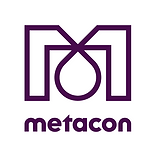Approvals in Principle
Pherousa obtained Approvals in Principle (AiP’s) from two major classification societies in the first quarter of 2025;
ABS (American Bureau of Shipping) and DNV (Det Norske Veritas), for installing its proprietary Ammonia-Hydrogen technology onboard an Ultramax vessel design
These approvals underscore the technical credibility and safety of the Pherousa concept, paving the way for full-scale design, integration, and demonstration aboard a ship.


“The Approval in Principle from two of the leading classification societies and certification bodies, ABS and DNV, marks another important milestone for us in the development of zero-emission solutions for the maritime industry. By granting Pherousa these AiPs, both ABS and DNV clearly state that there are no showstoppers of the Pherousa technology for marine application.
The grants further allow us to continue the design and construction of our series of 64.000 dwt Bulk Carriers earmarked for the Copper industry, to ensure that this specific commodity so essential to the global decarbonisation, can be delivered across oceans without any carbon footprint at all. Only ships that have no carbon fuels onboard can ensure the end-users that the copper utilized for solar panels or electric cars is free of emissions in its supply chain”
Hans Bredrup, Chairman of Pherousa AS
**
"Ammonia will have a key role to play in the energy transition at sea, whether as a carrier of hydrogen or as a fuel in its own right. The efficiency of ammonia cracking will play a decisive factor in its ability to contribute to decarbonization of the industry. ABS is proud to play a role in supporting development of this capability."
Stergios Stamopoulos, ABS Director, Global Sustainability
**
“The future fuel mix for shipping will vary depending on ship type and trade, but green ammonia as a zero emissions fuel is likely to play an important role in this fuel mix. DNV has already provided Class approval for the first ammonia-fueled vessel on water, the Fortescue Green Pioneer, and is now taking further steps together with Pherousa and it’s technology partners to find innovative solutions for truly zero emission solutions for an Ultramax bulk carrier. Ammonia cracking combined with a PEM Fuel Cell has no need for pilot fuel or other fossil sources, and is as such an innovative solution for maritime application towards full decarbonization”
Morten Løvstad, VP and Global Business Director for Bulk Carriers, DNV
**
“The Republic of the Marshall Islands (RMI) Maritime Administrator (the “Administrator”) actively participated in the hazard identification (HAZID) meetings regarding this innovative technology. Given the rapid regulatory changes taking place, development of these types of innovative solutions are critical for advancement of the industry. The Administrator appreciates the opportunity to be part of this project and looks forward to continued participation.” The RMI Registry is one of the leading registries in the world reaching nearly 200 million gross tons and more than 5,700 vessels including bulk carriers, container ships, gas carriers, general cargo, tankers, passenger ships, offshore units, and yachts.”
David Wamsley, Deputy Commissioner of Maritime Affairs,
Republic of the Marshall Islands Maritime Administrator
**
“I’m happy to see that the ammonia cracking technology developed with Pherousa and now exclusively commercialized through Pherousa has passed such a critical milestone and approval from two of the world’s largest and most powerful classification societies. This technology holds future potential to provide emission-free propulsion to virtually all of the world’s shipping industry.”
Christer Wikner, CEO and President of Metacon




